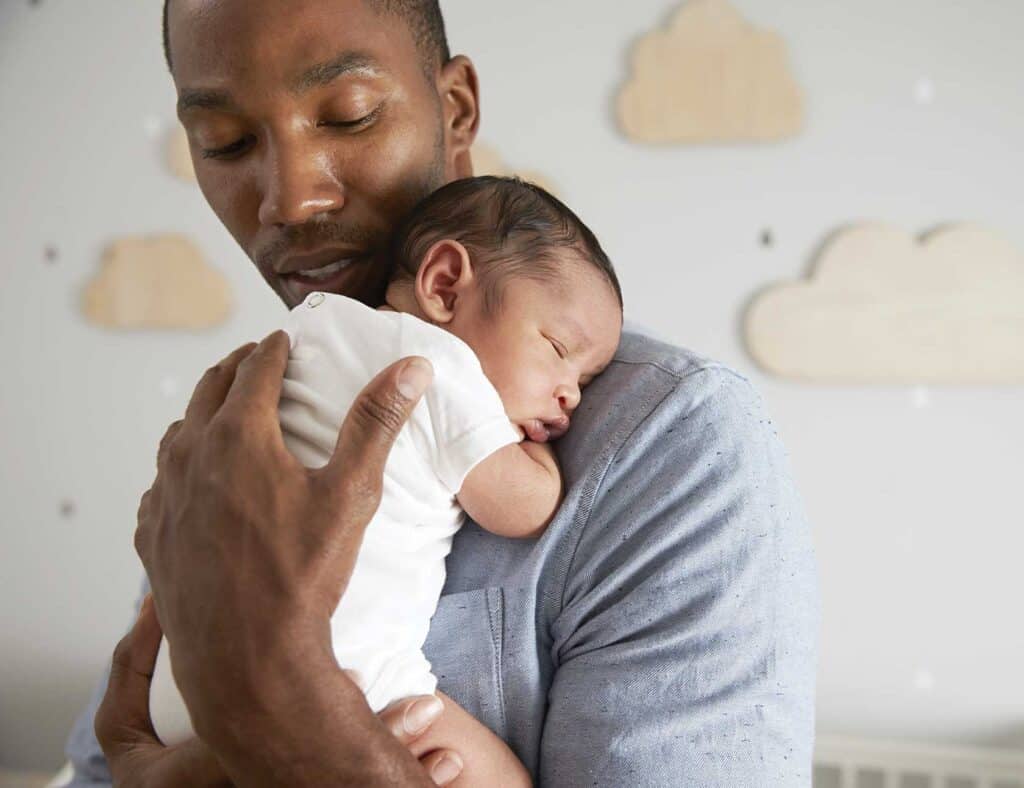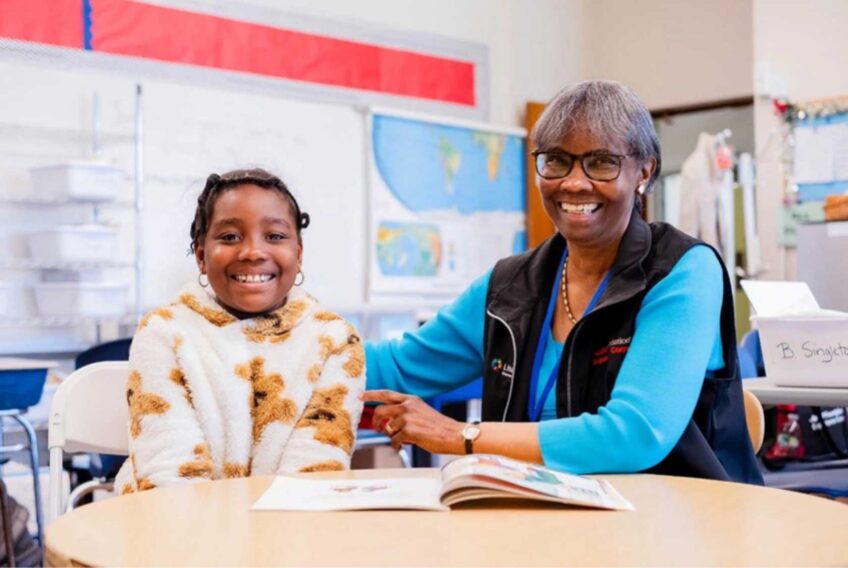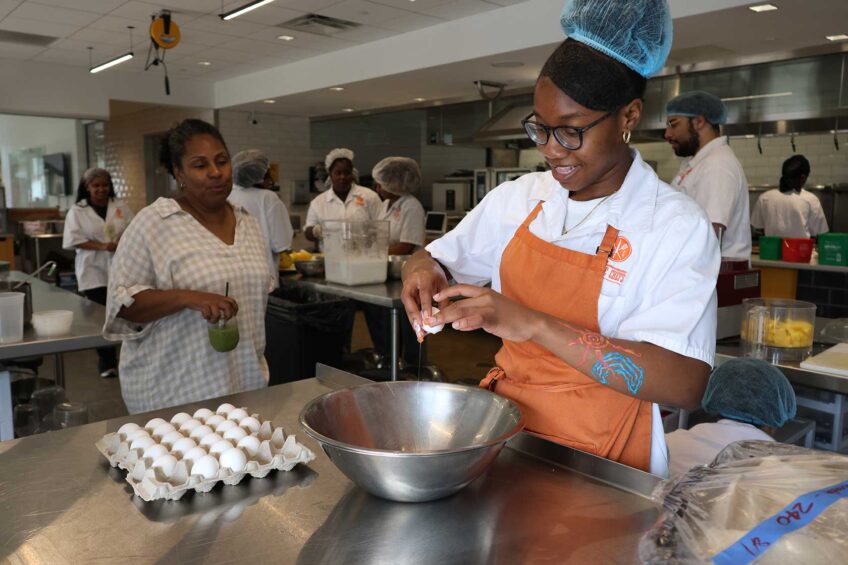
Researchers, community members and advocates will gather next month in a conference to discuss solutions to the continuing Black maternal health disparities.
The Center for Black Maternal Health & Reproductive Justice at Tufts University School of Medicine will hold its annual Black maternal health conference, starting April 4.
This year’s event will be a “game-changer,” said Ndidiamaka Amutah-Onukagha, director of the center.
“This conference is unique,” she said in an email. “It’s about healing, advocacy, and building a more supportive system for all families, and I can’t wait to see the impact it has.”
The event will mark the center’s eighth year running the annual conference. And for staff at the Center for Black Maternal Health & Reproductive Justice, it’s an attempt to work toward remedying a long-standing issue in the country.
The United States faces an outsized impact from maternal health issues. According to a 2024 issue brief from the Commonwealth Fund, a foundation that works to support health and health equity, the United States had the highest rate of maternal deaths of any high-income nation.
That brief reported that, in 2022, there were about 22 maternal deaths for every 100,000 live births in the country. That was compared to other countries like France or the United Kingdom, which had about eight and 13 deaths per 100,000 live births respectively.
In the United States, those numbers are especially poor for Black women. According to the U.S. Centers for Disease Control, the maternal mortality rate among the country’s Black population was nearly 50 deaths per 100,000 births in 2022.
“In a country as resource-rich as the United States, maternal health inequities should not exist,yet they persist,” Amutah-Onukagha said.
Massachusetts is not exempt from the gap in maternal mortality and morbidity — the former refers to deaths, the latter to health problems that result from being pregnant or giving birth.
In the state, from 2011 to 2020, Massachusetts’ Black, non-Hispanic population saw about 146 cases of severe maternal morbidity per 10,000 births, the highest of any racial or ethnic group. The state’s white population had a severe maternal morbidity rate of about 64 per 10,000 births.
“Massachusetts has earned national recognition as a beacon of what high-quality health care should look like in our country. But even here, we see alarming disparities in health outcomes — especially for Black birthing people,” said Lyv Norris, Massachusetts state director for Reproductive Equity Now, in an email.
Reproductive Equity Now is a sponsor of the maternal health conference.
Communities in Massachusetts tend to fare better than the country at large. Nationwide, Black populations saw 226 cases of severe maternal morbidity per 10,000 births compared to 105 among white populations, according to a 2021 brief from the Commonwealth Foundation.
But even in a state like Massachusetts, with its better Black maternal health outcomes, there’s still room for improvement, Norris said, making an event like the upcoming maternal health conference a “critical” space to have conversations about how to best lead in improving health care and outcomes.
“Being a beacon of care means being a beacon of care for everyone,” Norris said.
Each year, the conference has a different focus to reflect the “multi-faceted approach needed to solve the maternal health crisis,” she said. In years past, that focus has been turned toward the role of policy, nurses, doulas, midwives and technology to support maternal health care.
This year, in turn, will center the conversation on fathers, and the role they have in addressing maternal health inequities.
Broadening that lens brings the conversation to a wider group of people involved in the issue, Norris said. Black maternal health isn’t a personal issue, Norris said, but rather a family and community issue in which fathers have a role in advocating for their partner and creating a better system.
“When fathers show up, speak out, and stand alongside Black mothers and partners, we move closer to the change our families and communities deserve,” Norris said.
Amutah-Onukagha said a discussion focused on the role of fathers is “long overdue.”
“Fathers are not just supporters,” she said. “They are partners and advocates whose voices and experiences are crucial to improving outcomes for Black and brown mothers and families.”
The role of fathers in Black maternal health disparities has been a subject of academics too.
A 2024 conceptual paper published in the Journal of Social Work in Public Health identified a small body of research around the involvement of African American fathers, along with the potential for them to participate in potential solutions to the health crisis. The paper suggested that fathers can fit into existing interventions like community support, education, access to doulas and breastfeeding support through advocacy.
“The maternal health crisis is an [African American] woman’s issue. Without a doubt, the maternal health crisis is also an [African American] father’s issue,” the authors wrote. “It is imperative to involve [African American] fathers in the solution to the maternal health crisis and the morbidity and mortality [African American] women experience.”
Amutah-Onukagha said that the conference is especially important right now as communities locally discuss the development of a birth center — an effort that was delayed by a rejection from the Boston Zoning Board of Appeals last month — and, nationally, the country grapples with policy changes that threaten reproductive and maternal health care.
Bringing a range of voices together in one space, like at this conference, is an important step to grow and strengthen maternal health care access, she said.
“When all of the experts and communities are in the room this translates into real change for families — and that’s what this conference is about,” Amutah-Onukagha said.
The Center for Black Maternal Health & Reproductive Justice’s Annual Black Maternal Health Conference will be held April 4 and 5. Community members can register to attend virtually at bmhc.vfairs.com






